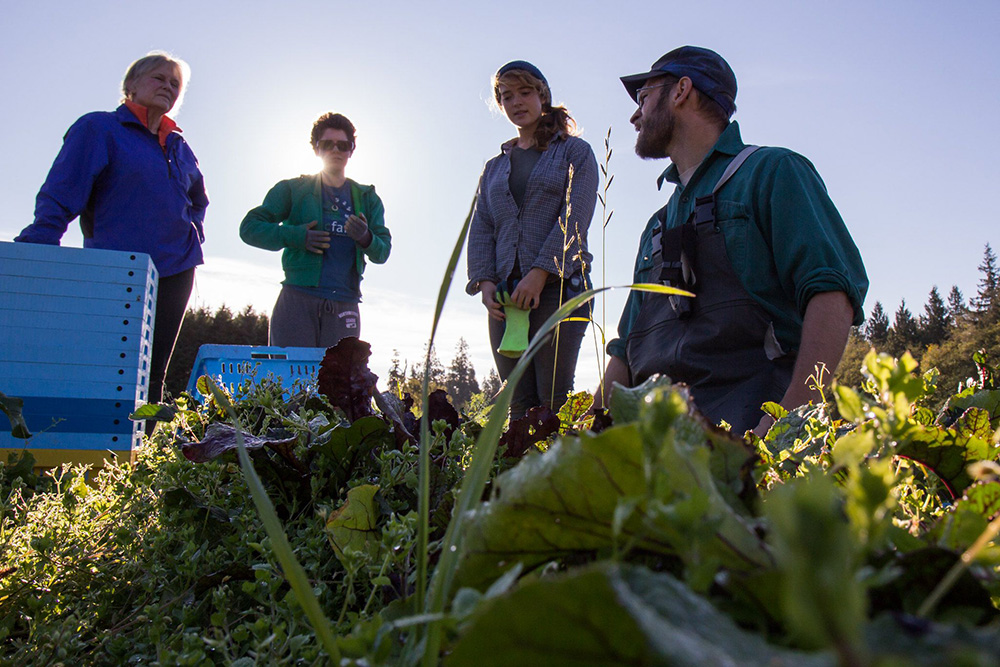Photo: British Columbians have responded with enthusiasm for local food during the public health crisis. Can we build on what we’ve learned, and make it stick? Photo: Jamil Rhajiak, UBC Farm.
We asked: What has COVID-19 shown you about making our food system better?
If there’s one thing the pandemic has taught all of us, it’s that providing access to food is the most essential of essential services.
It’s taught us many other lessons too, from the dangerous work conditions that migrant farmers and meat-packing employees face to the importance of supporting the producers, markets, restaurants and frontline grocery store workers that keep us healthy and fed when we unexpectedly find ourselves stuck in our neighbourhoods for months on end.
For all the problems we’ve witnessed with supply chains and service closures, British Columbians have responded with enthusiasm for local food. Demand for Community Supported Agriculture boxes and garden plots went through the roof in the Lower Mainland; everyone from chefs to farmers learned new online systems for arranging orders, pickups and local deliveries; and First Nations demonstrated the role Indigenous food sovereignty plays in the fight against colonialism.
With many more threats to food security on the horizon, we need to take this wake-up call seriously, say representatives on all sides of the dinner plate, from field to fork.
“I think we need to view this current crisis as a fire drill,” said local food systems advocate Michael Ableman, who picked up the phone after a long day of work at Foxglove, his family farm on Salt Spring Island. “We just had a momentary glimpse into the possibility that things were going to shut down when, here in Canada, the trucks kept rolling, the planes were shipping, and the boats were still moving stuff around.” Read More





